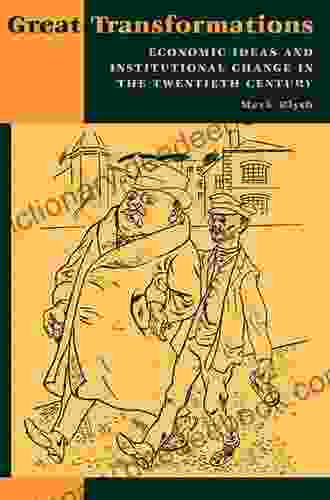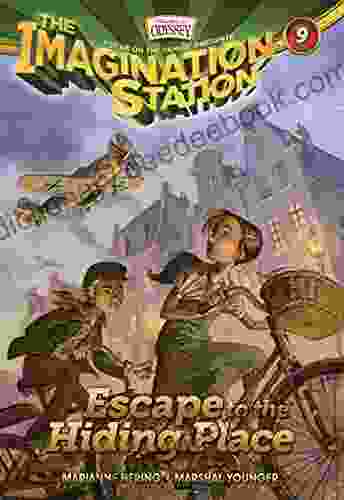Economic Ideas and Institutional Change in the Twentieth Century: A Comprehensive Exploration

The 20th century witnessed a profound transformation of economic ideas and institutions, shaping the course of global economic history. This article delves into the key concepts, debates, and shifts that characterized this period, highlighting their impact on economic policies and societal structures.
The Great Depression of the 1930s sparked a fundamental challenge to classical economic thought. John Maynard Keynes introduced the concept of aggregate demand, arguing that government spending could stimulate economic growth during periods of recession. This theory formed the basis of Keynesian economics, which advocated for government intervention to manage macroeconomic conditions.
Keynesianism's influence led to the establishment of welfare states in many developed countries. These states provided social safety nets, such as unemployment insurance, healthcare, and education, aimed at promoting economic stability and reducing poverty.
4.3 out of 5
| Language | : | English |
| File size | : | 739 KB |
| Text-to-Speech | : | Enabled |
| Screen Reader | : | Supported |
| Enhanced typesetting | : | Enabled |
| Word Wise | : | Enabled |
| Print length | : | 300 pages |
In the 1970s, Keynesianism faced criticism for its perceived inflationary effects. Monetarism, led by Milton Friedman and the Chicago School, emerged as a contrasting economic approach. Monetarism emphasized control over the money supply as the primary monetary policy tool. Additionally, it advocated for free market principles, reducing government regulations and promoting individual liberty.
Monetarism's influence influenced the economic policies of several countries, including the United States and the United Kingdom. It contributed to the deregulation of industries and the privatization of state-owned enterprises.
The 20th century witnessed a significant increase in global economic integration. Technological advancements in transportation and communication facilitated the movement of goods, services, and capital across borders. The establishment of international organizations, such as the World Trade Organization (WTO),promoted free trade and economic cooperation.
Global economic integration had both positive and negative consequences. It led to increased economic growth and interdependence but also raised concerns about globalization's impact on national sovereignty, inequality, and environmental sustainability.
The 20th century saw significant changes in labor markets. Industrialization and automation led to the decline of traditional manufacturing jobs and the rise of service-sector employment. Women's participation in the workforce increased, especially after World War II.
These transformations resulted in new labor market institutions, such as minimum wage laws, social security systems, and labor unions. The balance of power between workers and employers evolved, with governments playing a more active role in regulating labor conditions.
Economic growth in the 20th century was accompanied by growing concerns about income inequality. The concentration of wealth in the hands of a few raised questions about the fairness and stability of society.
Redistributive policies, such as progressive taxation and social welfare programs, were implemented to address inequality. These policies sought to reduce income disparities and provide a safety net for the poor and vulnerable.
Environmental degradation and resource depletion emerged as pressing concerns in the latter part of the 20th century. Economists began to consider the environmental impact of economic activities and develop concepts such as externalities, pollution taxes, and sustainable development.
Environmental economics became an important field of study, influencing government regulations, corporate sustainability practices, and international environmental agreements.
The advent of the internet and information technology fueled a technological revolution in the late 20th century. The digital economy emerged, characterized by rapid technological advancements and the rise of knowledge-based industries.
This transformation led to new economic models and challenges, including intellectual property rights, data privacy, and the impact of technology on employment and labor markets.
The 20th century was a period of profound economic change, characterized by the emergence and evolution of new economic ideas and institutions. The Keynesian Revolution, Monetarism, Global Economic Integration, Labor Market Transformations, Economic Inequality, Environmental Economics, and the Digital Revolution shaped the economic landscape and continue to influence our understanding of the economy. By examining these concepts and their historical context, we gain valuable insights into the complex interplay between economic ideas and institutional change that shape our societies and economies.
4.3 out of 5
| Language | : | English |
| File size | : | 739 KB |
| Text-to-Speech | : | Enabled |
| Screen Reader | : | Supported |
| Enhanced typesetting | : | Enabled |
| Word Wise | : | Enabled |
| Print length | : | 300 pages |
Do you want to contribute by writing guest posts on this blog?
Please contact us and send us a resume of previous articles that you have written.
 Novel
Novel Text
Text Story
Story Genre
Genre Reader
Reader Library
Library Paperback
Paperback Paragraph
Paragraph Sentence
Sentence Glossary
Glossary Bibliography
Bibliography Preface
Preface Synopsis
Synopsis Footnote
Footnote Manuscript
Manuscript Codex
Codex Bestseller
Bestseller Classics
Classics Narrative
Narrative Biography
Biography Encyclopedia
Encyclopedia Dictionary
Dictionary Character
Character Librarian
Librarian Borrowing
Borrowing Periodicals
Periodicals Study
Study Research
Research Scholarly
Scholarly Reserve
Reserve Academic
Academic Rare Books
Rare Books Special Collections
Special Collections Interlibrary
Interlibrary Literacy
Literacy Study Group
Study Group Thesis
Thesis Book Club
Book Club Theory
Theory Textbooks
Textbooks Ron Roecker
Ron Roecker Jennifer J Hunter
Jennifer J Hunter Jennie Marts
Jennie Marts Michael Jacobsen
Michael Jacobsen Petr Mikhin
Petr Mikhin Larissa Behrendt
Larissa Behrendt Alexander Chernev
Alexander Chernev Don Alonzo Taylor
Don Alonzo Taylor Joel Patterson
Joel Patterson Alexa Verde
Alexa Verde Sheena Binkley
Sheena Binkley Steven Md Knives
Steven Md Knives Susan Wittig Albert
Susan Wittig Albert William Winter
William Winter Sonya Grypma
Sonya Grypma Andy Andrews
Andy Andrews Rosie May Garrett
Rosie May Garrett James Edward Mills
James Edward Mills Nadifa Mohamed
Nadifa Mohamed Michael J Yaremchuk
Michael J Yaremchuk
Light bulbAdvertise smarter! Our strategic ad space ensures maximum exposure. Reserve your spot today!

 Grant HayesTownsend Images of America: Bathroom Readers Institute - Preserving American...
Grant HayesTownsend Images of America: Bathroom Readers Institute - Preserving American... Junot DíazFollow ·8.2k
Junot DíazFollow ·8.2k Gerald ParkerFollow ·11.1k
Gerald ParkerFollow ·11.1k Rex HayesFollow ·8.6k
Rex HayesFollow ·8.6k Derek BellFollow ·7.9k
Derek BellFollow ·7.9k Todd TurnerFollow ·7.5k
Todd TurnerFollow ·7.5k George R.R. MartinFollow ·2.6k
George R.R. MartinFollow ·2.6k Hunter MitchellFollow ·4k
Hunter MitchellFollow ·4k Herb SimmonsFollow ·13.1k
Herb SimmonsFollow ·13.1k

 Jerome Powell
Jerome PowellBarbara Randle: More Crazy Quilting With Attitude -...
A Trailblazing Pioneer in...

 Jan Mitchell
Jan MitchellLapax: A Dystopian Novel by Juan Villalba Explores the...
In the realm of dystopian literature, Juan...

 Rodney Parker
Rodney ParkerOur Mr. Wrenn: The Romantic Adventures of a Gentle Man
Our Mr. Wrenn is a 1937 novel...
4.3 out of 5
| Language | : | English |
| File size | : | 739 KB |
| Text-to-Speech | : | Enabled |
| Screen Reader | : | Supported |
| Enhanced typesetting | : | Enabled |
| Word Wise | : | Enabled |
| Print length | : | 300 pages |
















